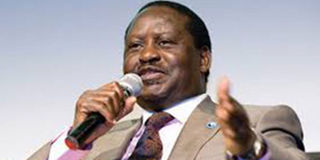TOUGH JUSTICE : The blurred line between nobility and demagoguery

What you need to know:
- Most of our politicians seem to have a flair for drama and a remarkable ineptitude in fulfilling their true purpose. Politics here has little to do with governance of a country, but more about power battles between the government and opposition.
Thinking about African politics sometimes reminds me of A Few Good Men, a star-studded, critically acclaimed film released in 1992. Just like for the Marine Corps in the film, the continent is in search of a few good men (and women) to bail it out from the bondage of poverty. But those men and women, more often than not, end up becoming the very reason a lot of our African countries remain stuck in destitution.
Most of our politicians seem to have a flair for drama and a remarkable ineptitude in fulfilling their true purpose. Politics here has little to do with governance of a country, but more about power battles between the government and opposition.
Governments end up spending a lot of time on political propaganda in a bid to secure the next elections, so much that they hardly do anything meaningful until it’s too late. Opposition politicians, on the other hand, are on a tireless fishing expedition, looking to discredit the sitting government even in matters that require a united front. Thus, in a previous piece, I made a case for consensus politics in Tanzania on the premise that progress could be stalled by divisive politics.
African politics
A genuine search for nobility in African politics yields very few names, as witnessed by Mo Ibrahim’s millions which collected dust for a few years before they found one Ellen Johnson Sirleaf. The political atmosphere we are too familiar with has an oversupply of demagogues, with their sycophants and cult followers. But sometimes it is hard to know who is genuine and who isn’t.
The case of Kenya’s Raila Amolo Odinga (pictured) is an interesting one. The doyen of opposition politics in East Africa has made life extremely difficult for all the presidents in that country, with the exception of the first president, Jomo Kenyatta.
Trained as an engineer in East Germany during the Cold War, Raila approached politics from a socialist point of view much like his father, the first vice president of the country, only more aggressively. Whichever way you look at it, his notoriety or popularity in Moi’s regime is well documented and said to be among the things that provoked the second president into ruling the country with an iron fist.
His fallout with President Kibaki, Kenya’s third president, that saw him humiliate him (Kibaki) in the country’s first constitutional referendum is also cited as one of the turning points for the country. And of course, his recent mock swearing-in that made the Kenyan government reach a “new low” in their respect for press freedom is another example of the kind of thorn the man has been on the flesh of successive governments in Kenya.
But Raila is an enigma. The manner in which he managed to pull off the gravest act of defiance by swearing himself in as President, conceivably flirting with treason, and in the name of national unity, return to shake the hand of the man he accuses of stealing two elections from him, is a fitting testament to the thinness of the line between demagoguery and nobility.
Our politics will continue to fail to translate into meaningful governance so long as personalities remain bigger than ideas. Case in point, here in Tanzania, no matter how hard Mwalimu could attempt to associate ujamaa with “the party”, it was hard separating the idea from him, thus the state of ideological confusion that the nation finds itself in in this post-Nyerere era.
Different scripts
Raila’s supporters would be reading from different scripts. Those who were supporting him because of his push for electoral justice would be wondering what the joint statement meant for the cause; while those who follow him as the undisputed kingpin would quickly reconcile with his probable change of heart.
Having achieved so much in the way of democratic reforms, Raila’s record should inspire many on the continent. I hope history judges him as one of the few good men, but his concern for the remaining bit of his political career should be to leave no one doubting that he is not a s



